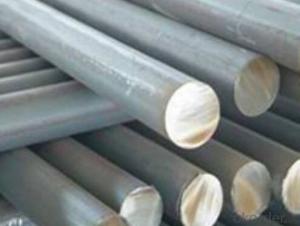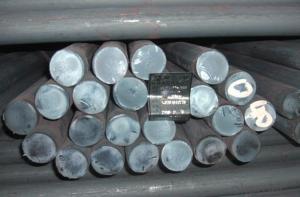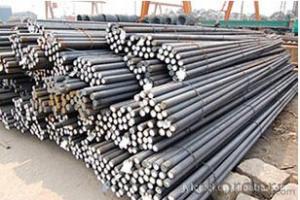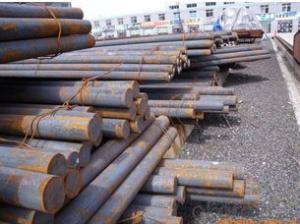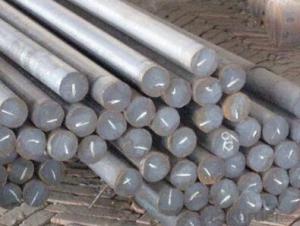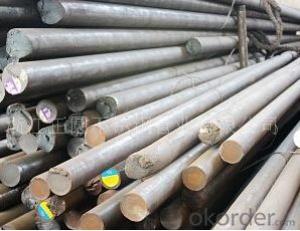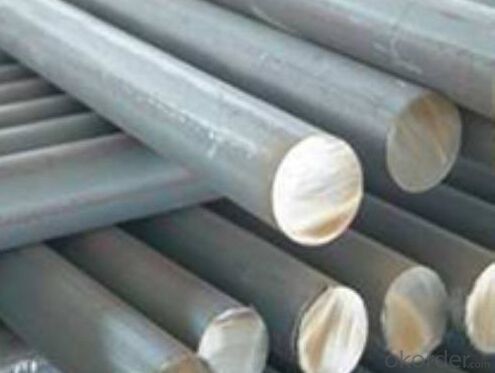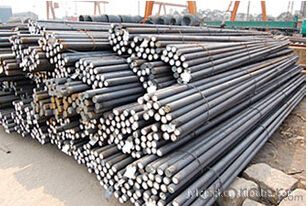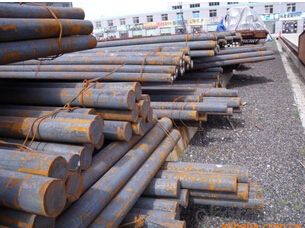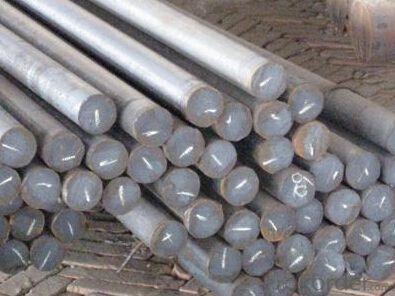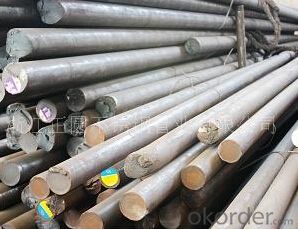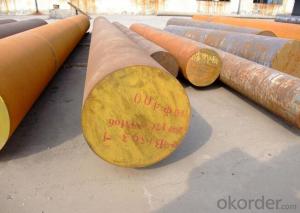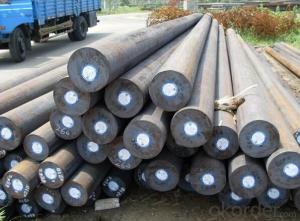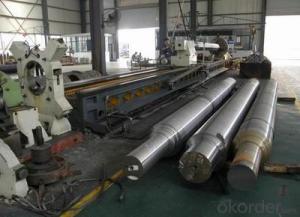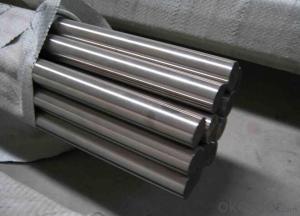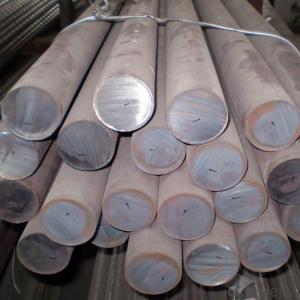Forged Iron Round Steel Bar 42CrMo4 Steel Price
- Loading Port:
- Shanghai
- Payment Terms:
- TT OR LC
- Min Order Qty:
- 3 m.t.
- Supply Capability:
- 100000 m.t./month
OKorder Service Pledge
OKorder Financial Service
You Might Also Like
Specification
Forged Iron Round Steel Bar 42CrMo4 Steel Price
Details Information of Forged Iron Round Steel Bar 42CrMo4 Steel Price
| Name | SAE1045 Carbon Steel Round Bar |
| Shape | Round Bar/Square Bar/Flat Bar/Plate/Wire |
| Standard | GB/ASTM/SAE/AISI/DIN/JIS/EN/BS |
| Surface Treatment: | Black/Peeling/Polished/Machined |
| Delivery Condition: | Hot Rolled or Forged/Peeled or Black Surface |
| Test | SGS/UT 100% Elements Testing |
| Certificate: | ISO/Mill Certificate |
| Service: | 24 hours online service / |
| more than 20 years trading and manufacture | |
| Quality Assurance: | the third party inspection, such as SGS, BV, TUV…etc. is acceptable |
| Packaging Details: | Seaworthy Packaging or as per customer's packing instruction |
| Carbon structure round bar | Q195 Q235A Q235B 10# 20#-55# S45CB |
| Low alloy high strength round bar | Q345A/Q345C/Q345D Q345B Q345E |
| Alloy structure round bar | SAE51B20 20Cr 40Cr 40CrV 20CrMo/30CrMo/35CrMo/42CrMo 20CrMoA/30CrMoA/35CrMoA/42CrMoA/42Cr ML20CrMo/ML30CrMo/ML35CrMo/ML42CrMo B7/SCM435-440 20MnTiB 20CrMnMo 20CrMoH 42CrMoH 40MnB/40MnBH 30Mn2-40Mn2 27SiMn 50CrVA 30CrMnTi |
| Pinion steel | 20CrMnTi 20CrMnTiH 20CrMnTiHCS/20CrMnTiHLD Q20CrMnTi-1/Q20CrMnTi-2 |
| Sucker rod | 20-35CrMoA |
| Free-cutting steel | GT1215S |
| Spring steel | 60Si2MnA 65Mn |
| Ball bearing steel | GCr15 |
Chemical Composition of Forged Iron Round Steel Bar 42CrMo4 Steel Price
| C | Si | Mn | P | S | Cr | Ni | Cu |
| 0.17-0.24 | 0.17-0.37 | 0.35-0.65 | ≤0.035 | ≤0.035 | ≤0.25 | ≤0.25 | ≤0.25 |
| Tensile strength (σb/MPa) | Yield strength (σb/MPa) | Elongation (δ5/%) |
| ≥410(42) | ≥245(25) | ≥25 |
Company Introduction of Forged Iron Round Steel Bar 42CrMo4 Steel Price
CNBM International Corporation is the most import and export platform of CNBM group(China National Building Material Group Corporation) ,which is a state-owned enterprise, ranked in 270th of Fortune Global 500 in 2015.
With its advantages, CNBM International are mainly concentrate on Cement, Glass, Iron and Steel, Ceramics industries and devotes herself for supplying high quality series of refractories as well as technical consultancies and logistics solution.
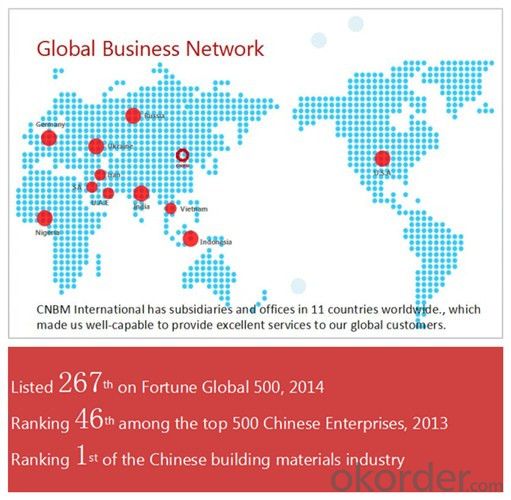
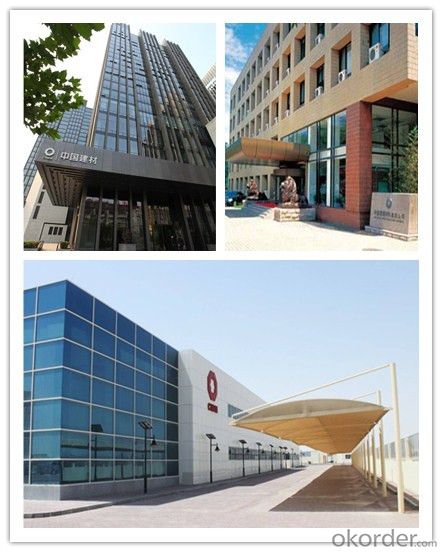
Certificates of Forged Iron Round Steel Bar 42CrMo4 Steel Price
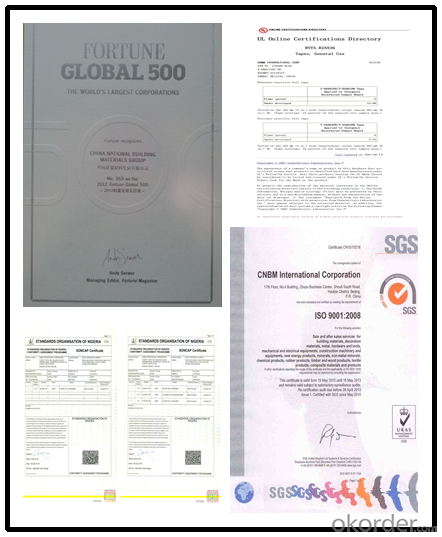
Packaging & Delivery of Forged Iron Round Steel Bar 42CrMo4 Steel Price
Packaging Detail | Sea worthy packing /as per customer's packing instruction |
Delivery Detail | 15 ~ 40 days after receiving the deposit |
Products show of Large Stock Grade S45C Mild steel round Bar Sizes
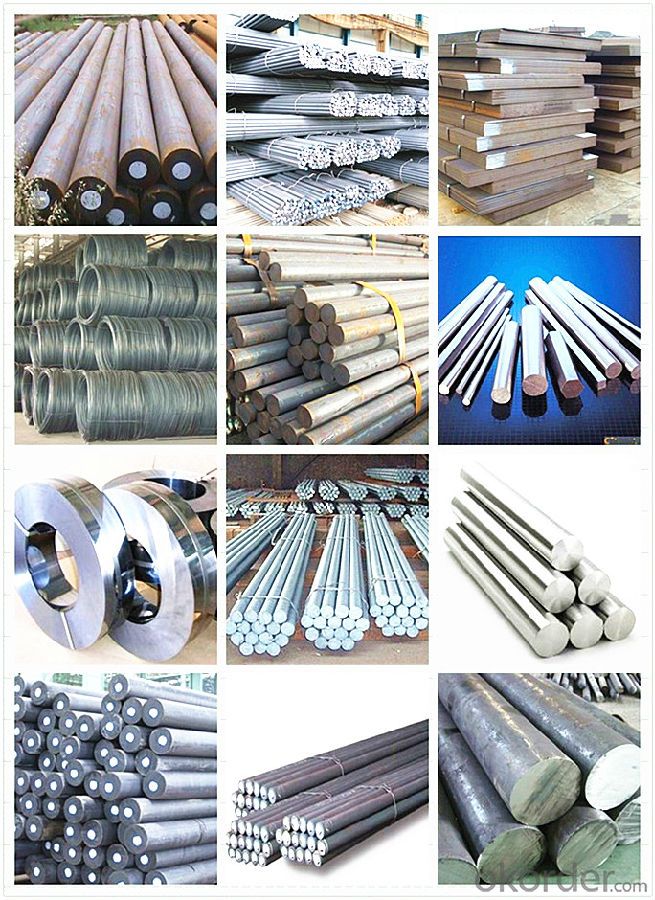
FAQ
Are you a trading company or manufacturer? | Manufacturer |
What’s the MOQ? | 3 metric ton |
What’s your delivery time? | 15-35 days after downpayment received |
Do you Accept OEM service? | Yes |
what’s your delivery terms? | FOB/CFR/CIF |
What's the Payment Terms? | 30% as deposit,70% before shipment by T/T |
Western Union acceptable for small amount. | |
L/C acceptable for large amount. | |
Scrow ,Paybal,Alipay are also ok | |
Why choose us? | Chose happens because of quality, then price, We can give you both. Additionally, we can also offer professional products inquiry, products knowledge train (for agents), smooth goods delivery, excellent customer solution proposals. |
What's your available port of Shipment? | Main Port, China |
What’s your featured services? | Our service formula: good quality+ good price+ good service=customer's trust
|
Where are your Market? | Covering more than 160 countries in the world |
- Q: What are the applications of special steel in the aerospace sector?
- Special steel has various applications in the aerospace sector due to its exceptional properties. It is used for manufacturing critical components such as turbine blades, landing gear, and structural parts. The high strength, corrosion resistance, and heat resistance of special steel make it ideal for withstanding extreme conditions experienced during flight. Additionally, its lightweight nature contributes to fuel efficiency and overall performance improvement in aircraft.
- Q: How does the availability of raw materials affect the production of special steel?
- The availability of raw materials plays a crucial role in the production of special steel. Special steel is a high-quality alloy that is used in various industries such as automotive, aerospace, and energy. It is known for its exceptional strength, durability, and resistance to corrosion, making it a preferred choice for critical applications. The availability of raw materials, such as iron ore, coal, and alloying elements like chromium, nickel, and molybdenum, directly affects the production of special steel. These raw materials are essential for the composition and properties of the steel, and any disruptions in their supply can significantly impact the production process. If the availability of iron ore, which is the primary source of iron, is limited or becomes costly, it can lead to a scarcity of the main ingredient for steel production. This can cause a decrease in the production of special steel, resulting in higher prices and potential shortages in the market. Similarly, the availability and cost of alloying elements are critical factors. Alloying elements enhance the properties of steel, making it suitable for specific applications. For example, chromium increases the steel's resistance to corrosion, while molybdenum improves its strength at high temperatures. If these alloying elements are not readily available, it may affect the ability to produce special steel with the desired properties. Furthermore, the availability of energy resources, such as coal or natural gas, is also important for the production of special steel. These resources are used in the steelmaking process, specifically in the production of coke, which is essential for the smelting of iron ore. Limited availability or increased prices of energy resources can impact the cost and efficiency of steel production. In conclusion, the availability of raw materials is a critical factor in the production of special steel. Any disruptions or limitations in the supply of raw materials, including iron ore, alloying elements, and energy resources, can have a significant impact on the production process, leading to higher prices, potential shortages, and compromised properties of the final product. Therefore, ensuring a stable and sufficient supply of raw materials is essential for the production of high-quality special steel.
- Q: What are the different surface finishing techniques used for special steel?
- Some of the different surface finishing techniques used for special steel include electroplating, powder coating, galvanizing, passivation, and mirror polishing.
- Q: How does special steel contribute to the oil and gas aftermarket industry?
- Special steel plays a crucial role in the oil and gas aftermarket industry due to its unique properties and capabilities. Firstly, special steel is highly resistant to corrosion, making it ideal for use in the harsh and corrosive environments commonly found in the oil and gas sector. This resistance to corrosion ensures that the equipment and components made from special steel have a longer lifespan, reducing the need for frequent replacements and maintenance. Additionally, special steel offers high strength and durability, allowing it to withstand the extreme pressures and temperatures encountered in oil and gas operations. This strength ensures that the equipment and components made from special steel can operate reliably and efficiently, even under demanding conditions. Moreover, special steel can be tailored to meet the specific needs of the oil and gas industry. With its various grades and compositions, special steel can be customized to possess specific properties such as resistance to sulfide stress cracking, hydrogen embrittlement, and high-temperature oxidation. These customized properties make special steel suitable for critical applications such as wellheads, pipelines, valves, and other equipment used in the oil and gas aftermarket industry. Furthermore, special steel enables the production of complex and intricate components that are essential for the oil and gas sector. Its excellent machinability and weldability allow for the creation of precision-engineered parts, ensuring the efficient and reliable operation of oil and gas equipment. In summary, special steel contributes significantly to the oil and gas aftermarket industry by providing corrosion resistance, high strength, durability, customization options, and the ability to manufacture intricate components. These properties make special steel indispensable in ensuring the safety, reliability, and efficiency of operations in the oil and gas sector.
- Q: Can special steel be used in high-speed applications?
- Indeed, special steel can be utilized in high-speed applications without a doubt. Special steel encompasses a variety of steel alloys that have been intentionally developed and engineered to possess enhanced properties like exceptional strength, durability, and resistance to wear and corrosion. These properties render special steel appropriate for a wide range of demanding applications, including those involving high speeds. In high-speed applications, such as aerospace, automotive, machining, and power generation, the material must endure extreme conditions, including elevated temperatures, vibrations, and mechanical stress. Special steel is purposefully designed to meet these requirements and deliver outstanding performance even in the face of such challenging circumstances. For instance, high-speed steel (HSS) is a specific type of special steel formulated to retain its hardness and strength at high temperatures, which makes it ideal for cutting tools like drills, end mills, and saw blades. Similarly, stainless steel variants like martensitic and precipitation-hardening stainless steels are frequently employed in high-speed applications due to their exceptional strength, toughness, and resistance to corrosion. Furthermore, the advancement of cutting-edge manufacturing techniques, such as powder metallurgy, has facilitated the production of special steel with even superior properties, including higher hardness, improved wear resistance, and enhanced dimensional stability. These advancements have further expanded the range of applications for special steel in high-speed industries. To summarize, special steel is a versatile and dependable material that can be effectively utilized in high-speed applications. Its unique properties make it suitable for withstanding demanding conditions and delivering excellent performance, which is why it is the preferred choice for industries that require materials capable of enduring high speeds, temperatures, and mechanical stress.
- Q: What are the safety benefits of using special steel?
- Using special steel can provide several safety benefits in various applications. One of the main advantages is its enhanced strength and durability compared to traditional steel. Special steel is often designed to withstand extreme conditions, such as high temperatures or corrosive environments, making it ideal for applications in industries like aerospace, automotive, and oil and gas. The high strength of special steel allows for the construction of safer and more reliable structures. It can withstand heavy loads, reducing the risk of structural failures or collapses. This is crucial in industries where the safety of workers, equipment, and the general public is of utmost importance. Another safety benefit of special steel is its resistance to corrosion. Corrosion can weaken structures and compromise their safety. Special steel is often alloyed with elements like chromium, nickel, or molybdenum, which provide excellent corrosion resistance. This makes it suitable for applications in marine environments, chemical processing plants, or any setting where exposure to moisture or chemicals is a concern. Special steel is also known for its ability to retain its mechanical properties at high temperatures. This makes it an excellent choice for applications where heat resistance is crucial, such as in the construction of fire-resistant structures or in the manufacturing of industrial ovens and furnaces. By using special steel in these applications, the risk of structural failure or fire-related accidents can be significantly reduced. Furthermore, special steel can offer improved fatigue resistance, which is important in applications subject to cyclic loading or vibration. Fatigue failure can occur when a material experiences repeated stress over time, leading to cracks and eventual failure. Special steel can be engineered to have excellent fatigue properties, reducing the likelihood of unexpected failures and improving the overall safety of structures or equipment. In summary, the safety benefits of using special steel include enhanced strength, durability, corrosion resistance, heat resistance, and fatigue resistance. These properties make special steel a reliable choice for industries where safety is a top priority, ensuring the protection of workers, equipment, and the general public.
- Q: How is special steel used in the production of molds and dies?
- Special steel is used in the production of molds and dies due to its unique properties such as high hardness, wear resistance, and ability to withstand high temperatures. These characteristics make it suitable for shaping and forming various materials through processes like casting, forging, and stamping. Special steel molds and dies can be used in industries such as automotive, aerospace, and manufacturing to create precise and durable components or products.
- Q: How does special steel contribute to the packaging aftermarket industry?
- The packaging aftermarket industry greatly benefits from the use of special steel, which provides various advantages that enhance the efficiency and quality of packaging processes. Firstly, special steel is renowned for its exceptional strength and durability, making it ideal for the manufacturing of packaging machinery and equipment. This durability ensures that the machinery can withstand the demanding requirements of the industry, resulting in improved reliability and less downtime. Additionally, special steel boasts excellent resistance to corrosion, making it highly suitable for packaging applications that involve exposure to moisture, chemicals, or extreme temperatures. This corrosion resistance extends the lifespan of packaging equipment and prevents degradation, ultimately reducing maintenance costs and enhancing the overall efficiency of the packaging aftermarket industry. Moreover, special steel can be customized to meet specific needs, allowing for the production of tailored packaging solutions. This flexibility and versatility enable manufacturers to create innovative designs that enhance product protection, optimize space utilization, and improve transportation logistics. For example, special steel can be used to manufacture lightweight yet strong packaging materials, reducing shipping costs and minimizing the environmental impact associated with packaging waste. Furthermore, special steel possesses excellent machinability and weldability, making it easy to fabricate intricate packaging components with high precision. This capability enables manufacturers to produce packaging solutions that perfectly fit specific product dimensions, ensuring optimal protection during transit. In conclusion, special steel plays a vital role in the packaging aftermarket industry by offering strength, durability, corrosion resistance, customization options, and excellent machinability. These qualities contribute to the overall efficiency, reliability, and quality of packaging processes, benefiting both manufacturers and consumers.
- Q: What are the different types of spring steel?
- There are several types of spring steel, including high carbon spring steel, alloy spring steel, stainless steel, and blue tempered spring steel. Each type has different properties and is used for various applications in industries such as automotive, construction, and manufacturing.
- Q: How does special steel contribute to reducing product rejection rates in quality control?
- Special steel can contribute to reducing product rejection rates in quality control by providing enhanced material properties such as increased strength, hardness, and corrosion resistance. These improved properties make special steel suitable for manufacturing critical components, ensuring that they meet the required specifications and quality standards. By using special steel, manufacturers can produce products that are less prone to defects, leading to lower rejection rates during quality control inspections.
Send your message to us
Forged Iron Round Steel Bar 42CrMo4 Steel Price
- Loading Port:
- Shanghai
- Payment Terms:
- TT OR LC
- Min Order Qty:
- 3 m.t.
- Supply Capability:
- 100000 m.t./month
OKorder Service Pledge
OKorder Financial Service
Similar products
Hot products
Hot Searches
Related keywords
